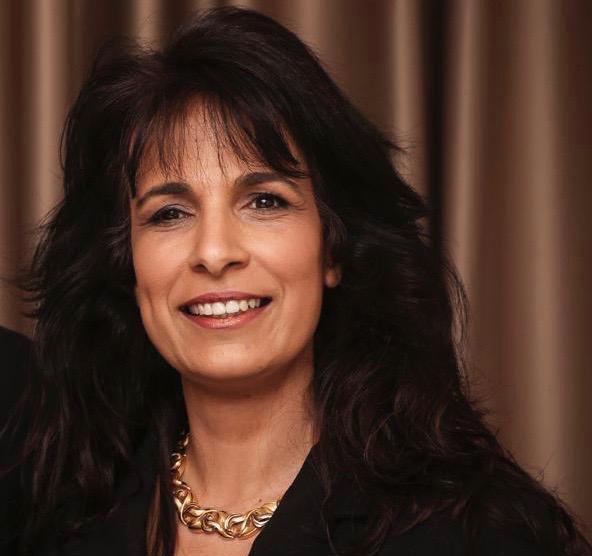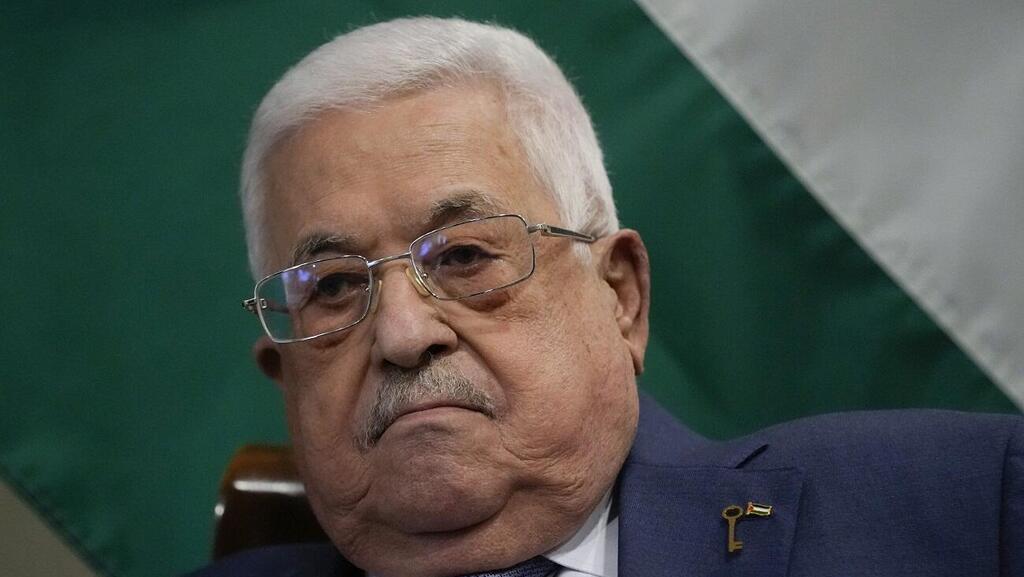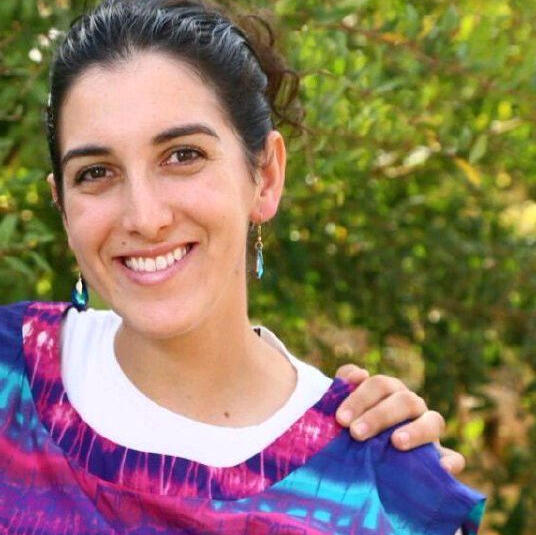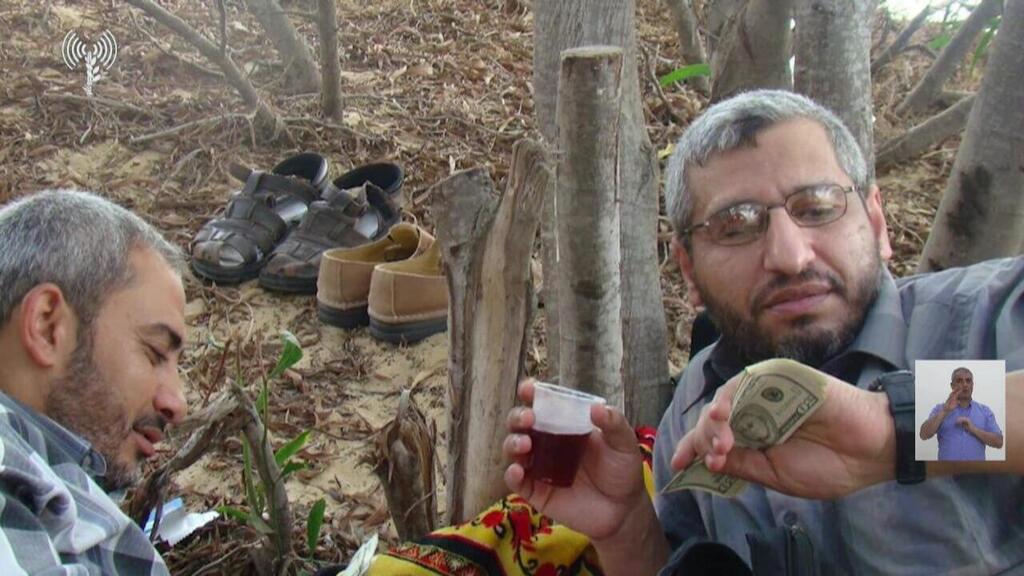Getting your Trinity Audio player ready...
These days, the discourse is increasing regarding the role of the Palestinian Authority, if at all, in the day after the war. Most of the attention is directed to the funds that Israel transfers to the PA, some of which go to the families of terrorists who carried out attacks against Israelis in a program nicknamed "pay for slay."
The PA has a "rank" for each terrorist, and the payment that is transferred to his family is derived from the number of years he was sentenced to prison in Israel. The issue of payments to the families of terrorists, specifically during the war, is making some progress. Last week, the Knesset passed a bill led by Knesset member Yitzhak Pindrus, which would increase the compensation payments to families affected by terrorism and which are directly offset from the tax funds intended for the Palestinian Authority.
"The path to tort claims and striking the PA's funds is less difficult now," explained Nitsana Darshan-Leitner, the chairwoman of the Shurat Hadin-Israel Law Center organization that handles the claims of terror victims and their families.
In fact, the bill, which passed its third reading with a large majority, states that terror victims will be able to claim compensation from anyone who transfers funding to terrorists or terror groups and encourages attacks by paying salaries to terrorists - including the PA - and receive compensation in the amount of 10 million shekels for each victim. In doing so, the law will allow terror victims and their families to file lawsuits against those who provide wages and rewards for committing acts of terrorism, and to receive compensation.
Within the framework of the law, compensation will not be deductible from any amount paid to the terror victims on behalf of the state. It was further stated that the terror victims will be able to enforce the judgment using any property of those involved in the funding of terrorism, including the frozen funds, according to the Law on freezing revenues - that the PA paid in connection with terrorism, and which are transferred to it from the Israeli government.
The law's passage joins the decision made recently in the trial of the murder of trial of Dalia Lemkus, who was murdered in a terror attack in November 2014 while she was standing at a bus stop in Gush Etzion and was stabbed by a terrorist. Lemkus' family is involved in a prolonged proceeding against the PA.
Recently, there was progress in the case when Court Registrar Idit Gur-Arie decided to increase the PA’s debt for the terrorist's salaries for the past two years, which amount to 276,000 shekels. In fact, the charge was imposed on the PA, which transferred and continues to transfer a monthly salary of 12,000 shekels every month to the terrorist Maher al-Hashlamoun, who murdered Lemkus.
The Military Court in the Ofer Base sentenced the terrorist to life imprisonment and ordered compensation of 4 million shekels to Lemkus family. The Shurat Hadin organization represents the Lemkus family, and worked to enforce the judgment and receive the compensation money from the PA and the State of Israel’s terrorist salary offsetting mechanism. So far, in aggregate, the family has managed to collect about 800,000 shekels from funds that were intended for the PA. "This is the only way to defeat terrorism, and we will not rest until all the terror victims get what they deserve," said Brenda Lemkus, Dalia 's mother.
"When we interrogated the Palestinian Authority's Minister of Prisoners, he proudly said, 'There is no Palestinian leader in the world, neither now nor in a hundred years, who can stop the salaries of prisoners and families of martyrs.' And now, like cowards, they are hiding and saying they didn't pay Lemkus' murderer," Darshan-Leitner said.
4 View gallery


Nitsana Darshan-Leitner heads Shurat Hadin-Israel Law Center organization that handles the claims of terror victims and their families
(Photo: Courtesy)
The law and the change in approach of the Israeli authorities takes on new significance in light of the huge amount of money seized during the IDF's activities in the Gaza Strip and West Bank - money used by Hamas and the different terror organizations. At the moment it is not clear where the seized money will go. In fact, this is another step by the State in the fight against anyone who funds terrorism.
The war for the money of the terror organizations, which is defined by the security forces as "the oxygen of terrorism," is international and very significant. Throughout the war, the IDF has treated this issue with great seriousness, and sends messages to the residents of Gaza telling them that the leaders of Hamas have amassed a great deal of money and live well, while the citizens live in difficult conditions. The IDF spokesperson circulated a photo of Mohammed Deif holding wads of cash in his hand, and while operating in Gaza IDF soldiers saw first-hand the luxurious mansions owned by senior Hamas figures, as well as the millions of dollars they held in cash.
The former head of the Mossad, Meir Dagan, established a special unit (Harpoon) that dealt with the terrorists' financial operations. The unit followed the assets and funds of leading terrorist operatives, but in the end did not receive the required resources and was closed. Today, security forces try to trace the money of the terrorist operatives, as well as the money that is transferred to the terrorists, with the understanding that this is an action that substantially harms the organization and its people. The law and the lawsuits that are filed are a sign of change in the way the money for the families of terror victims is collected.






